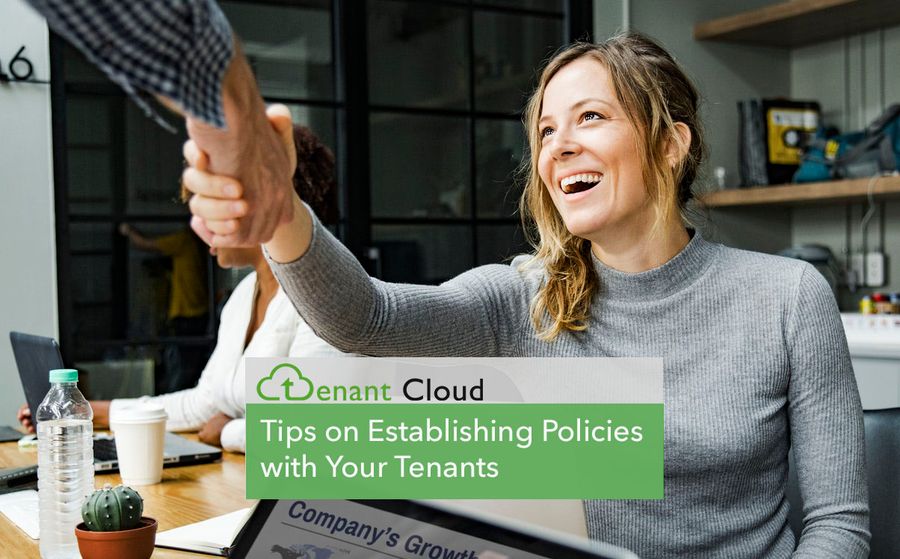As a landlord, you may have tenants who push policy boundaries. When tenants are pressing you to make an exception for them, it can be tempting to disregard a policy, but it’s a slippery slope. Allowing special exceptions can cause a simple situation to quickly spin out of control, and may even land you in legal trouble. If you find yourself too far down this unexpected road, the dilemma can often be difficult to correct without drastic measures, generally leading to a negative relationship.
This scenario often manifests itself with rental payments. Maybe you’re friends with a resident who’s had a rough month financially, so you kindly waive the established late fee. It happens again the next month, and you waive the fee again. Unfortunately, what you thought was going to be a short-lived situation becomes a recurring monthly theme, and the payments are now inevitably late—if you get them at all.
If you’ve had this experience, you’re not alone. Many landlords have been through this scenario. If you haven’t, it’s worth exploring different ways to avoid this predicament. So what can you do to head this off before it becomes a problem?

Clearly Explain Your Policies before Move-in
Clearly explaining established policies before move-in is one of the most important and effective things you can do. One way to do this is to give your residents clearly written policy documentation, whether as part of the lease or as a separate document. Often, however, future residents think it’s unnecessary to read through or forget to look at it.
So how can you increase the chances that residents will learn your policies? Since sitting down with residents-to-be is difficult for busy landlords, consider making a Youtube policy explainer video, where you talk residents through each policy in detail. With a service like TenantCloud, you can link to this video in the lease application so future residents watch it during the application process, and you can also use TenantCloud’s messaging functionality to automatically send the video in a message to the resident on move-in day. By verbally explaining policies to your residents, you can make it much easier for them to consume your policy content.
Related: How To Evict A Tenant When You Don't Receive Your Rent Payments: Quick Landlord Solutions
Make Policies Easily Accessible
Providing more than one place for your residents to access your policies after move-in is important. You can always post your policies in your office or offer paper copies for residents to grab as needed, but a more convenient and environmentally friendly way to give tenants access is to post policies on a website. By publishing them online and making sure tenants know where to access them, they will always be able to read through them whenever they have questions.
If you don’t have a website yet, one of the many benefits of using TenantCloud as a service is the landlord website that comes with it. On a TenantCloud provided website, you can post residents’ fully executed leases, which list your policies, to their accounts for them to easily access. You can also link your policy explainer video directly to the lease. Whatever you decide to do, aim to have your policies posted in as many places as possible for easy access.
Set a Precedence
Once you set a policy, stick to it. Showing your tenants that you follow policies sets a standard that there aren’t discrepancies between what you say and what you write. If you don’t follow your policies, you’ll undermine their believability and your tenants may start contacting you more frequently with questions—just to be sure there isn’t some exception they don’t know about. If you feel like your policy is too stringent, adjust it, republish it, inform your residents of the change, and then follow your new policy. The bottomline is, be sure to follow your established policies so residents don’t question their veracity.
Automate Your Processes
One great way to set a structured standard, and reduce your personal workload, is to automate your processes. For example, with TenantCloud, tenants can login to your website and review their financial accounts. They can see their payment histories and all associated fees—a feature unique to the TenantCloud portal—so there are no surprises. Automating late fees so the system applies fees the very day a payment is late makes it easier for your tenants to see exactly when and why they were charged.
Related: Winter House Maintenance Tips For Your Tenants: TenantCloud Rental Management Software Solution
By putting these steps into play, you can avoid going down a difficult road with your tenants, strengthen the efficaciousness of your policies, and ease your workload.
What other effective ways have you enforced your policies while maintaining good relationships with your tenants? Leave a comment below. We’d love to hear your thoughts or pieces of advice on this topic.







